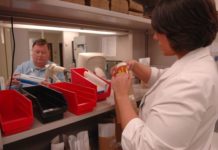patients who attained steady recovery with those who had not, two details emerged: “One of the successful strategies concerned changing one’s environment,” she said. “The second one was controlling one’s emotions and internal states. Research has shown that emotions highly influence our self-control. When we feel miserable, our main concern — over other goals — is how we can feel better.”
The researchers concluded that although most participants characterized themselves as either strong-willed or very strong willed, there appeared to be no link among those having a self-perceived strong will and the status of recovery. Instead, the total sum of strategies used by patients differentiated those in steady recovery from those who were not. Those in recovery were also more excited regarding strategies than those who had not succeeded in controlling their drug use. Willpower only remained valuable when used strategically.
“There is not one solution in overcoming addiction. People need many strategies on different levels, they need willpower. It takes time to acquire those skills and know when to apply them,” Snoek said. “I hope the research contributes to more understanding on the struggles addicted people face in their recovery,” and “I hope this inspires people who are recovering from addiction.”















